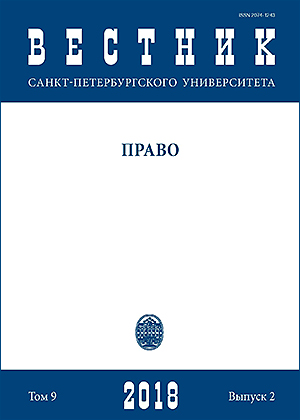Abul A‘la Mawdudi’s concept of Hakimiyya and its critical assessment in Islamic legal-political thought
DOI:
https://doi.org/10.21638/11701/spbu14.2018.208Аннотация
The article analyzes the legal-political aspects of the concept of hakimiyya (“divine domination”) devised by the Indo-Pakistani theologian Abul A‘la Mawdudi (1903–1979). The author asserts that the doctrine of hakimiyya is based upon the recognition that Allah is the sole subject empowered to provide legislation to the Muslim community directly (the principle of “legal domination”) and indirectly (the principle of “political domination”).The doctrine of hakimiyya acquires its political shape as the Islamic state (caliphate), wherein the Islamic community is entrusted with a limited right to legislation by means of agency (wikala). Special emphasis is laid on examination into the critical appraisal of the hakimiyya doctrinals in the modern Islamic legal science. The article explores the objections raised against the hakimiyya theory by the Indo-Pakistani religious scholars, including Abul Hasan Nadwi and Wahid al-Din Khan, as well as by a number of modern Arabic legal theorists, such as Hasan al-Hudaybi, Muhammad ‘Imara, Muhammad Sayyid al-‘Ashmawi, Haydar Ibrahim ‘Ali a.o. The author concludes that the concept of hakimiyya underlies Mawdudi’s doctrine of the sources of law and serves as the basis for his theory of the Islamic state, as well as for his concept of the “renewal of faith” through Islamic revolution.
Ключевые слова:
hakimiyya, legal domination, political domination, caliphate, din, Islamic state
Скачивания
Библиографические ссылки
Загрузки
Опубликован
Как цитировать
Выпуск
Раздел
Лицензия
Статьи журнала «Вестник Санкт-Петербургского университета. Право» находятся в открытом доступе и распространяются в соответствии с условиями Лицензионного Договора с Санкт-Петербургским государственным университетом, который бесплатно предоставляет авторам неограниченное распространение и самостоятельное архивирование.






